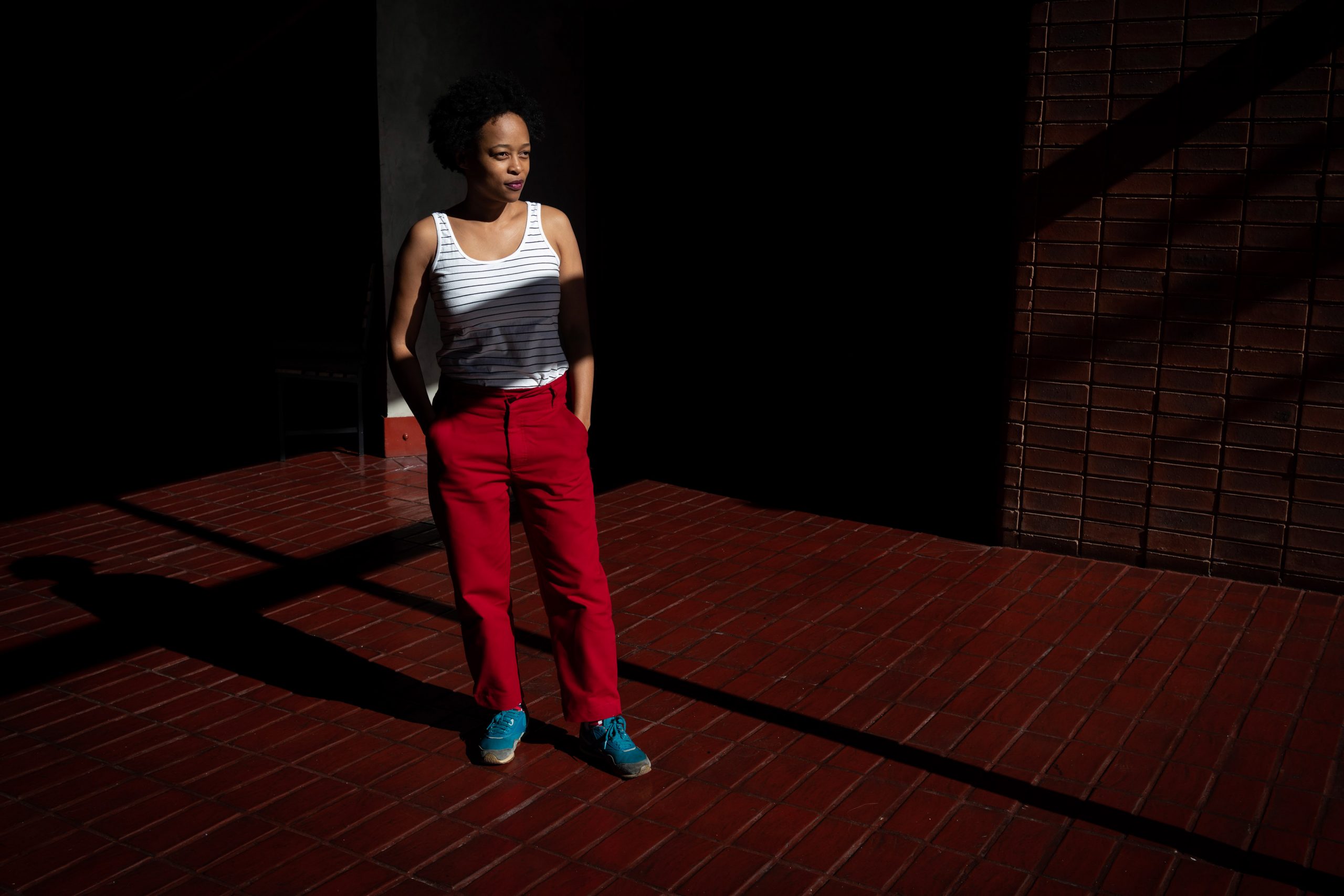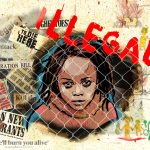Overcoming borders and prejudice with theatre
Based on the true testimony of four asylum seekers and a fictitious home affairs official, Frontières stages the realities of what it means to be a refugee in South Africa.
Author:
20 June 2019

South Africa has long been a popular destination for African migrants, asylum seekers and refugees fleeing wars and famine and in search of a better life. Reliable figures on the number of migrants – documented and undocumented – in the country are difficult to come by, with South African and international media contributing to widely inaccurate claims that range from anywhere between two million and five million people.
Related article:
This lack of reliable figures has paved the way for dishonest politicians to take advantage of some of the most vulnerable people in the country. Migration – and by extension xenophobia – featured in most political parties’ electioneering in the recent general elections. But it is not only the political elite who share these flawed and bigoted views; they echo throughout society.
Related article:
With Frontières: Personal Stories of Refugees in South Africa on at the Market Theatre in Johannesburg over World Refugee Day on 20 June, playwright Bobby Rodwell and director Mmabatho Montsho hope to break down these boundaries between colonial borders, the “us versus them” that is created when politicians vilify migrants and change perceptions.
“I’m hoping that the way we staged it, it allows people to break their walls and just listen and not listen with that defensive ear. I hope, I hope,” said Montsho. “It also challenged me to interrogate myself as well, as a South African, because I have been on every point of that conversation in terms of the point of view of each perspective.”
In their own words
Frontières is based on the testimony of four asylum seekers from Somalia, Goma in the eastern part of the Democratic Republic of the Congo (DRC), Cameroon and Zimbabwe. And Rodwell wrote in a fifth character, a South African.
She interviewed a number of asylum seekers in South Africa and narrowed it down to the four strong and gripping testimonies of Mohamed Abdullahi Mohamad from Somalia, a woman who fled the DRC with her five children and has chosen to remain anonymous, Ishmael Kauzani from Zimbabwe and Atabongwoung Gallous from Cameroon.
“My favourite thing about this piece is that it is not from the point of view of a rescuer, or finger-wagging, it really is just the testimonies of asylum seekers and refugees, of the people moving from one part of the continent to another part. And it is their point of view, in their words. We are not speaking for anybody,” Montsho said.
“It is also a power thing. Who gets to deliver their story and how do they choose to say their story?”
Rodwell added: “I feel that often when you read stories of refugees, the story is told through the lens of a saviour or an international NGO [non-governmental organisation]. I think it is very important for people to be able to articulate their own experiences. I think it is very important politically that we move away from speaking on behalf of… let people speak for themselves.”

Strong monologues of self
Starring Busisiwe Lurayi, Tonderai Chiyindiko, Charly Azade, Lindiwe Ndlovu and Khathu Ramabulana, the characters of Frontières each tell their stories through a single, strong monologue. The other four actors assume minor supporting roles in each character’s testimony.
Lurayi, as the single mother with five children fleeing the DRC, tells the heartbreaking story of a young woman raped by a soldier and then later finding the love of her life. Her husband encourages her to flee the DRC as security worsens and she is tested along the way, until she finally finds refuge in South Africa.
Ndlovu plays a tired and annoyed home affairs official, a frustrated ordinary South African whose neighbours poison her perception of migrants. This is the only character not based on individual testimony. Rather, said Rodwell, she based the character on interviews with many different South Africans. Adding the voice of a weary home affairs official but conflicted neighbour lends credibility to the story.
Challenges of stage and reality
Montsho said it was challenging leaving the comforts of filmmaking to direct her first stage production. But Frontières gave her an insight into the lives, the decisions that asylum seekers and refugees make to leave their countries, as well as the obstacles they have to overcome to obtain the documents they need to live in South Africa.
“What it did for me and what I hope it does for others, is it opened a lot of things that you don’t know. You just don’t know how the system works, you just don’t know that people try to get documented for months on end, and you just don’t know that the system is designed to allow people to not get documented, so they live undocumented for months on end,” she said.
“For a large number of people, the perspective is that people just come in and they don’t try and get documented. But they do. So, we see how these different systems work together to do what I am saying, that lack of political will.”

Beyond the rainbow
The political will Montsho refers to relates to the early rainbow nation project the ruling ANC embarked on after South Africa became a democracy in 1994.
“I have always been interested in things that have something or other to do with social justice and I am interested in the idea of political will towards a united, rainbow nation of Africa. The same effort that was put in to doing this rainbow nation between the races has not happened with us as a continent,” she said.
“When you look at the early 1990s or the mid-1990s, there were songs produced about South Africa, ‘we are all one’, there was the rugby that [former president Nelson] Mandela would go to, there was political effort, there was political will to create a different perspective. So, why isn’t there the same political will, the same passion, the same energy to say, ‘No, why are we unable to live together? Why are we so committed to colonial borders that don’t serve us as a people?’” Montsho said.
Rodwell said she hoped those watching the play would allow their misconceptions to be broken down and questioned.
“I think there are a lot of misconceptions about refugees in South Africa and globally. I think the notion that people leave their countries willingly is a primary misconception. People leave because of war, because there is no work, no food, because they are LGBTI and there is incredible repression of LGBTI people and other minority groups,” she said.
“I think that foreigners get the blame for the hardships that South Africans are going through, and I think there’s a tendency to not want to blame the ANC for it because the ANC still holds so much credibility. It’s easier to blame the other, it is just a human tendency,” said Rodwell.
Frontières runs at The Market Theatre in Johannesburg until 7 July.


